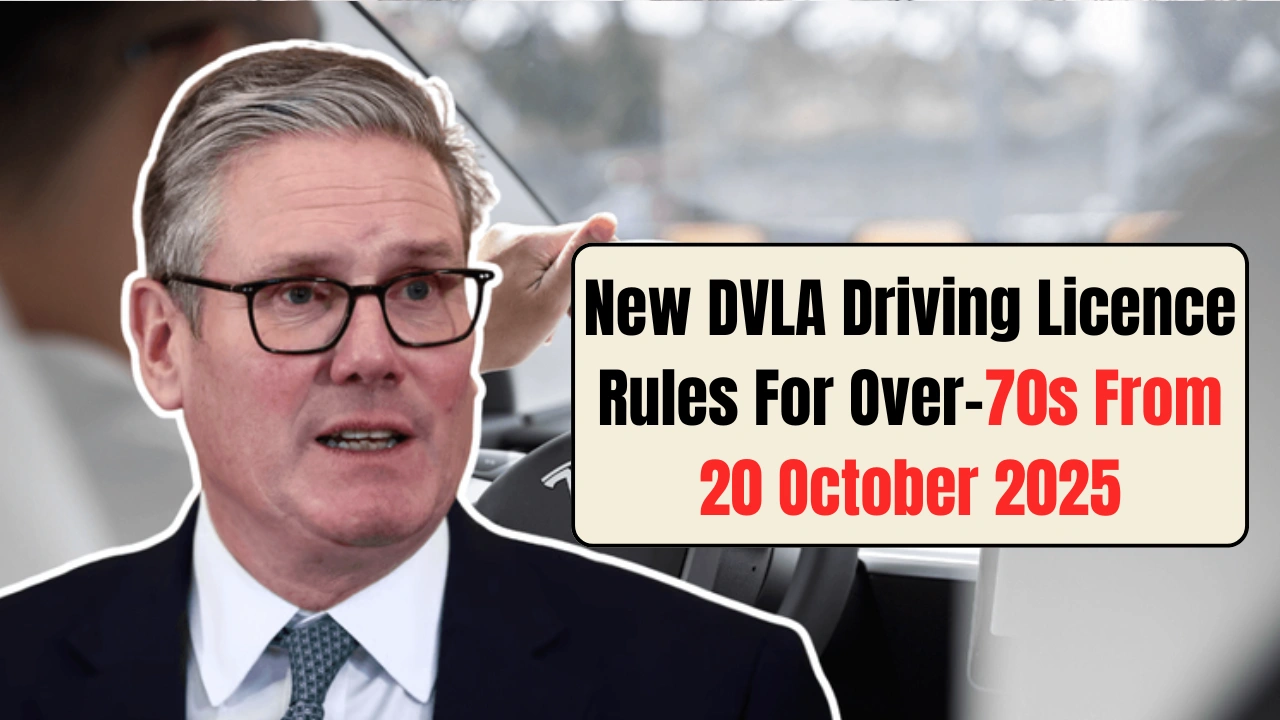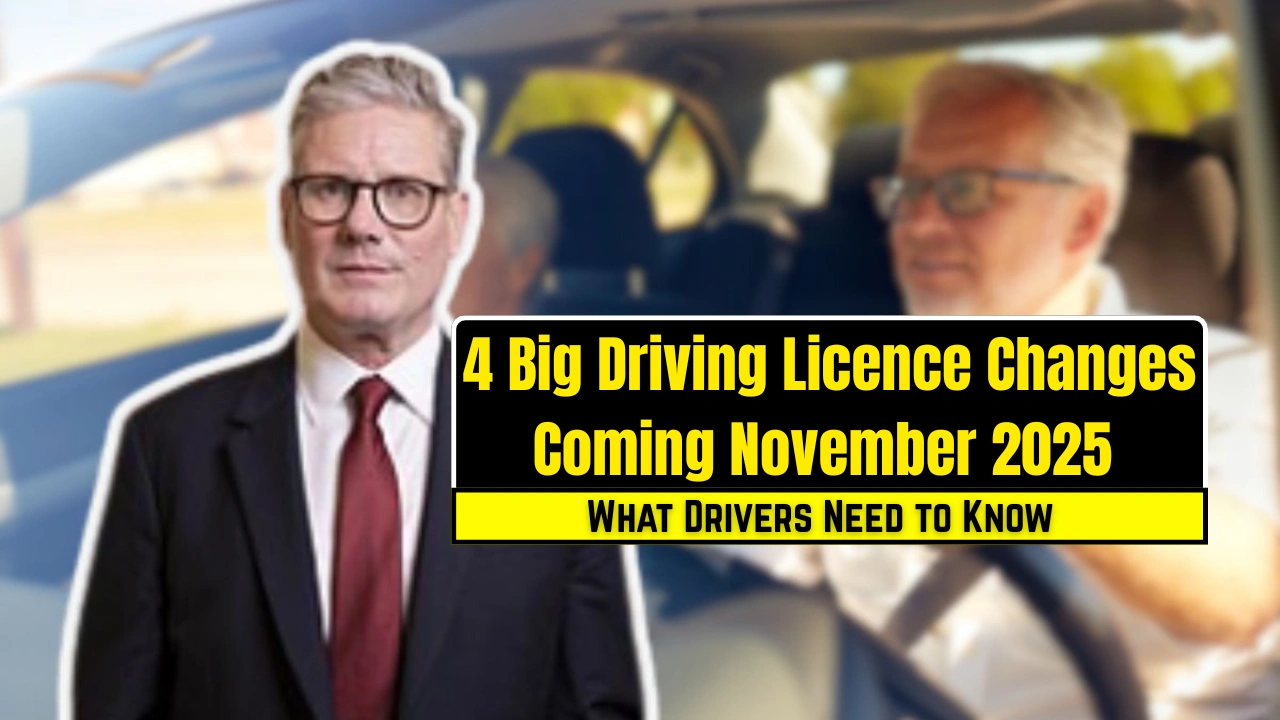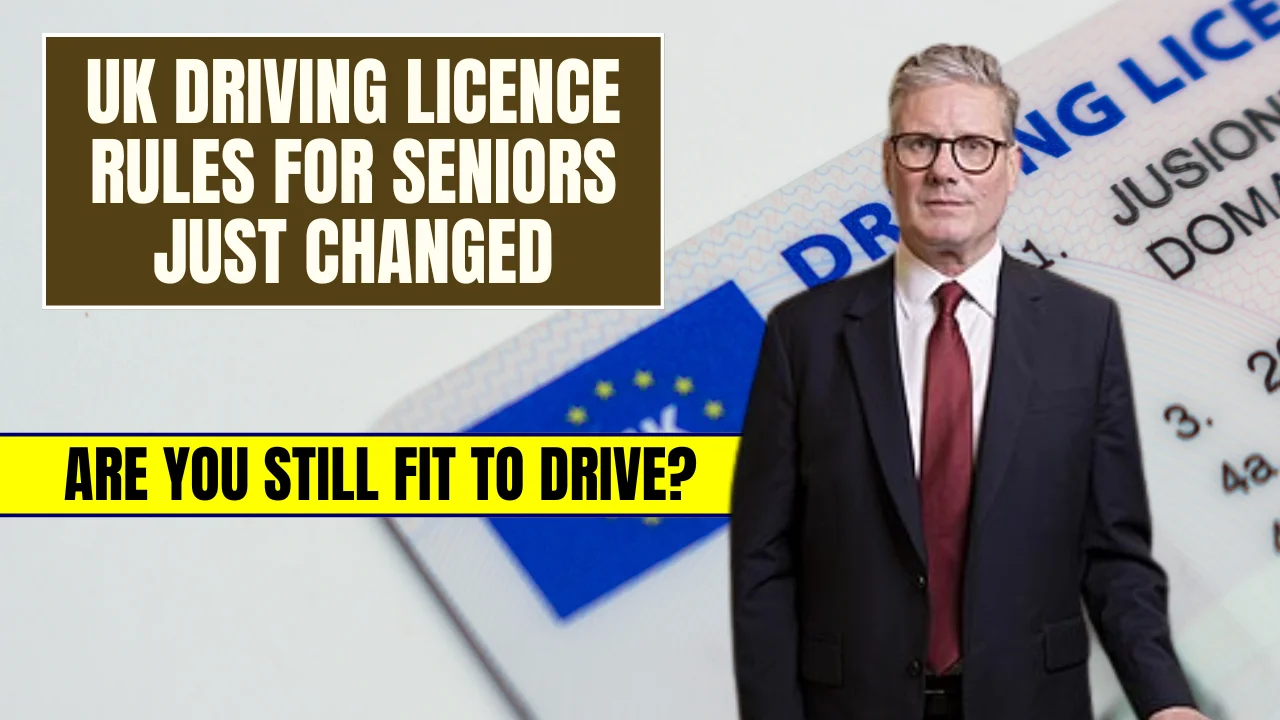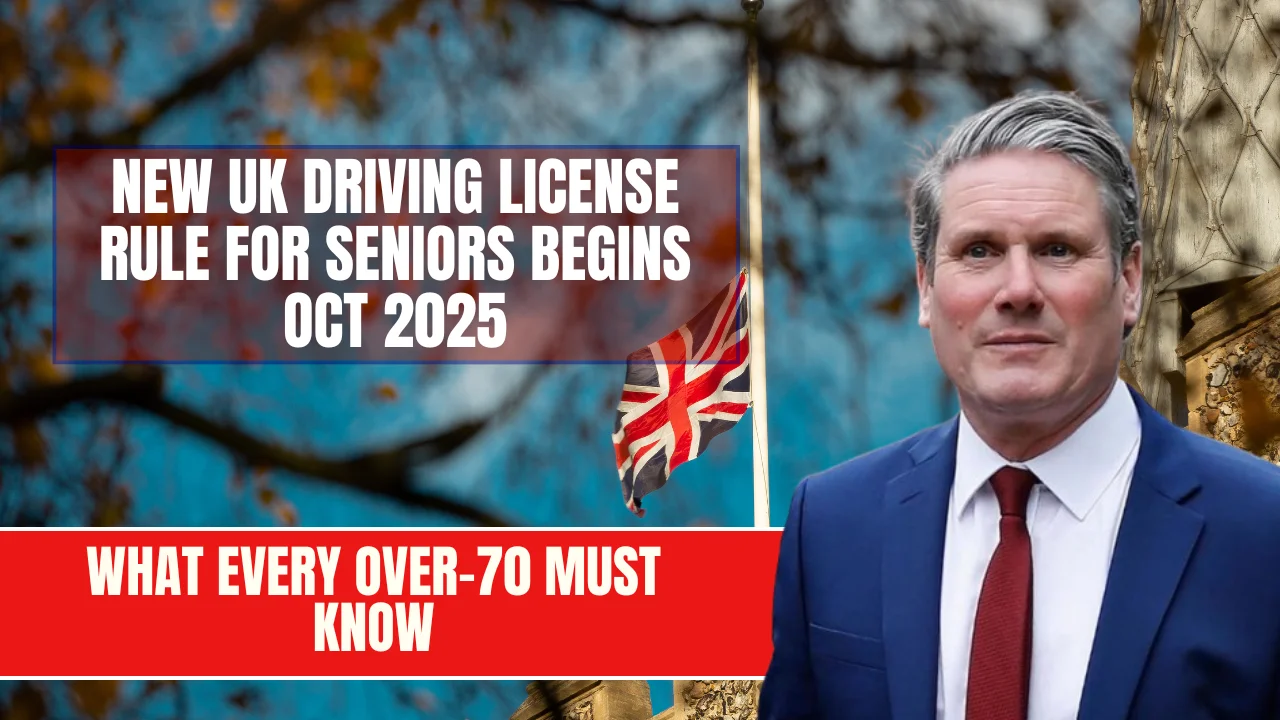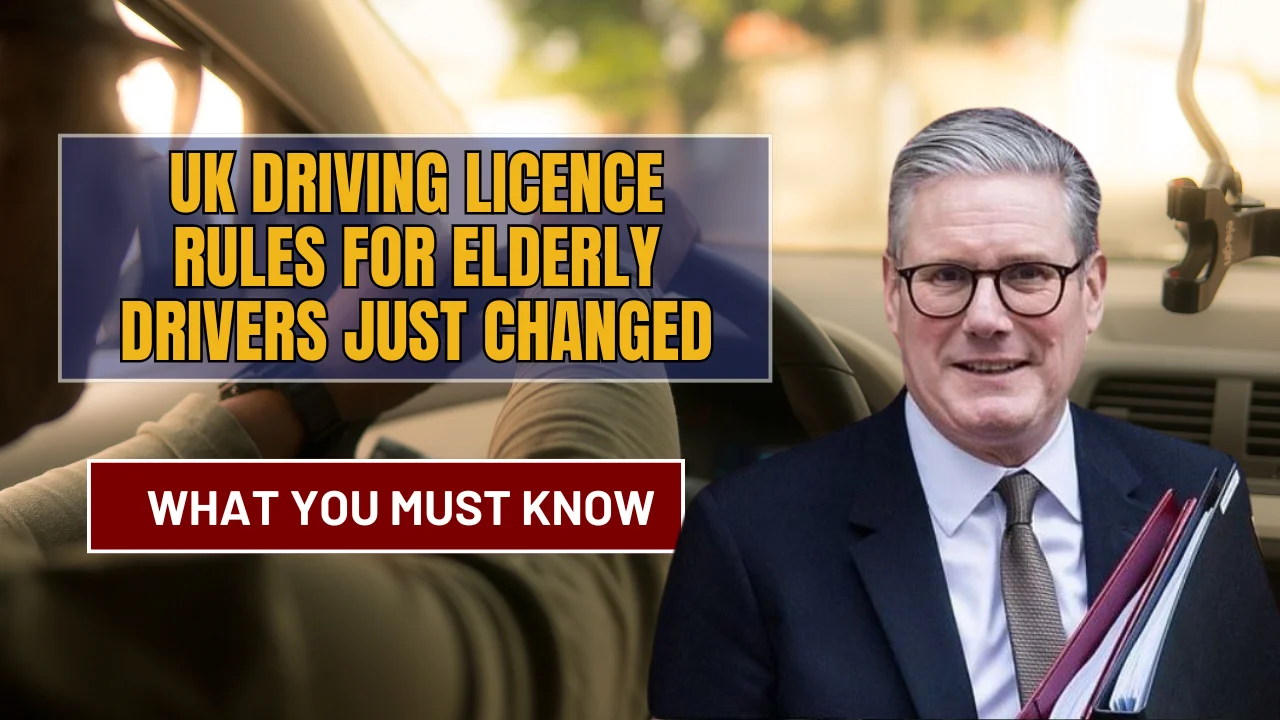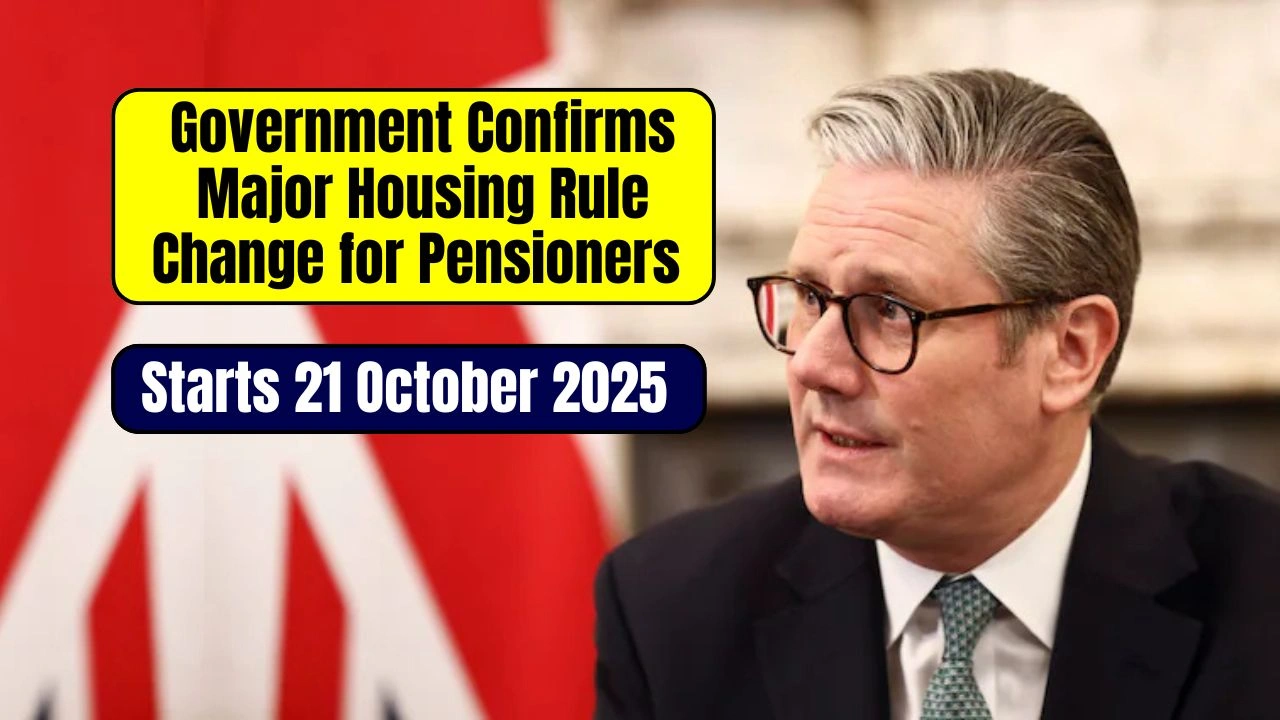From 20 October 2025, the UK is introducing updated rules for drivers aged 70 and over. The changes will affect how older motorists renew their licences, what medical conditions must be reported, and the process of proving fitness to drive. With more than five million drivers in this age group, the updates are significant and will impact thousands of households.
The new DVLA over-70s licence rules are designed to make the renewal process clearer while placing greater responsibility on drivers to report health changes. These rules aim to balance independence for older drivers with safety for all road users. If you are nearing 70, or helping a family member understand the changes, here is everything you need to know.
DVLA Over-70s Licence Rules Explained
The updated DVLA over-70s licence rules are set to place a stronger emphasis on health and fitness when renewing a driving licence. While the renewal cycle remains every three years, the process will now involve more detailed self-assessment forms and medical declarations. Drivers will be required to provide comprehensive information about their eyesight, neurological conditions, heart problems, and any other medical issues that could affect their ability to drive safely. The DVLA will also have the authority to request additional medical reports or GP confirmation where necessary. Importantly, failing to disclose relevant health conditions could result in licence suspension, fines, or even criminal liability in serious cases. These changes aim to maintain both independence and road safety for older drivers.
Overview Table – DVLA Over-70s Licence Rules (Effective October 2025)
| Category | Details |
| Date of Change | 20 October 2025 |
| Age Group Affected | Drivers aged 70 and older |
| Renewal Frequency | Every 3 years |
| Renewal Methods | Online, by post, or at participating Post Offices |
| Self-Assessment Form | Updated and required at every renewal |
| Medical Conditions to Declare | Vision issues, epilepsy, dementia, heart problems |
| Consequence of Non-Disclosure | Fines, suspension, or licence revocation |
| DVLA Reminders | Sent via post, with option for digital reminders |
| Supporting Documents | May include doctor’s reports if requested |
| Main Aim of the Update | Improve safety while supporting independence |
Renewal Frequency and Process
Drivers aged 70 and over must continue to renew their licence every three years. This requirement has not changed. What is different, however, is the paperwork involved. Renewal applications will now include a new self-assessment form, which asks drivers to declare more details about their health and any ongoing medical conditions.
The renewal process can be completed online, by post, or at select Post Offices. Online renewals remain the fastest option, with new licences usually issued within a week. Postal renewals may take longer, so drivers are advised to apply well before their licence expires.
Medical Conditions That Must Be Declared
A major update in the 2025 rules is the emphasis on medical reporting. Older drivers must declare any conditions that could impact their ability to drive safely. These include:
- Vision impairments not corrected with glasses or lenses
- Epilepsy or seizure disorders
- Neurological conditions such as dementia or Parkinson’s disease
- Severe heart conditions affecting awareness or reflexes
- Sleep disorders like sleep apnoea
- Blackouts, fainting, or sudden loss of consciousness
If a driver reports a relevant condition, the DVLA may request further medical evidence or a GP’s note before making a decision about licence renewal.
Updated Self-Assessment Forms
The new self-assessment form will be more comprehensive than the previous version. It will include:
- Specific questions about current medications and their side effects
- Sections for reporting hospital visits or ongoing treatments
- Direct prompts about eyesight, heart conditions, and neurological issues
- Guidance on when a medical professional’s confirmation is required
Honesty is critical. If a driver fails to disclose information and is later found to have a condition that affects driving, they risk fines or losing their licence.
DVLA Reminders and Notifications
To help drivers keep track of renewal dates, the DVLA will continue sending reminders around three months before a licence is due to expire. Starting in October 2025, drivers can opt to receive these reminders digitally through email or text message in addition to the traditional postal notices.
This digital option is designed to reduce missed renewals and make the process more convenient. However, it remains the driver’s responsibility to ensure their licence is valid at all times.
Penalties for Not Reporting Conditions
The DVLA is making it clear that non-disclosure of medical conditions is a serious offence. Drivers who fail to report a condition could face several consequences:
- Suspension of their driving licence until medical fitness is confirmed
- Permanent revocation of their licence if deemed unsafe to drive
- Fines or legal liability if involved in an accident linked to an undisclosed condition
These measures are not intended to punish older drivers but to ensure safety for everyone on the road.
Supporting Independence While Ensuring Safety
The goal of the new DVLA over-70s licence rules is not to restrict driving unnecessarily but to ensure that older drivers remain safe and capable. Age alone does not determine driving ability, but health issues can gradually affect reflexes, judgment, or vision.
By encouraging open communication about health and requiring honest self-assessments, the DVLA is aiming for a balanced approach. This way, those who are fit to drive can continue to do so, while those facing health challenges receive the support and guidance they need to make safe decisions.
FAQs
No, the renewal cycle remains every three years for drivers aged 70 and over.
Conditions like poor eyesight, epilepsy, dementia, heart disease, and sleep disorders must be declared.
Yes, online renewal is still available and is the quickest option. Paper applications and Post Office services remain available too.
Failing to disclose health issues can lead to fines, licence suspension, or even criminal liability if an accident occurs.
Not always. Most renewals only require the self-assessment form, but the DVLA may request medical evidence if certain conditions are declared.
